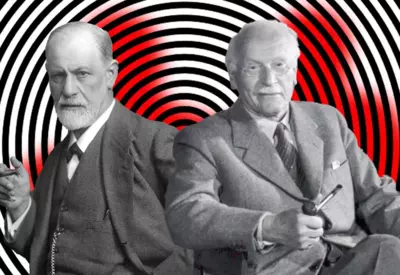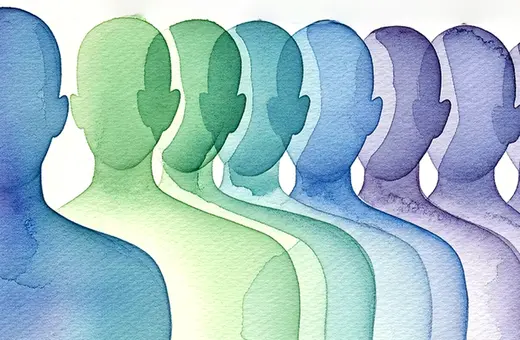Is there one self or many competing selves within us? Some argue we contain multiple selves, warring for attention and even control of the organism. But philosopher Luke Roelofs argues that we must distinguish between two accounts of the self to make sense of this: a persona emerging from mental processes and the substrate that underpins them. We can have multiple personas in conflict with one another, but the substrate in which they are in conflict remains unified. We should allow our multiple selves to democratically coexist in order to live a richer, more harmonious, internal life.
The Ancient philosopher Plato famously argued that our soul has three parts (usually translated as “reason”, “spirit”, and “appetite”), which are often at war with one another. His argument? We routinely find ourselves wracked with inner conflict, where we seem to simultaneously want a particular thing and also reject it. In one dramatic example he cites, the character Leontius struggles with both abhorrence at a pile of corpses and a desire to look at them, eventually breaking down and looking while screaming angrily at his own eyes “look, you wretches”.
 SUGGESTED READING
Freud vs Jung: Trauma extends beyond the self
By Andrew Samuels
Plato is not alone in thinking this way. We often describe our struggles and turmoils in terms suggesting a multiplicity of agents (or even a pair of wolves). We say we are at war with ourselves, or that we are not in control of ourselves, that a part of us wants something or believes something, but another part disagrees.
SUGGESTED READING
Freud vs Jung: Trauma extends beyond the self
By Andrew Samuels
Plato is not alone in thinking this way. We often describe our struggles and turmoils in terms suggesting a multiplicity of agents (or even a pair of wolves). We say we are at war with ourselves, or that we are not in control of ourselves, that a part of us wants something or believes something, but another part disagrees.
___
We can broadly distinguish approaches where the self is something that emerges out of mental processes, which we might call a “persona”, from approaches where it’s something that underlies and enables mental processes, which we might call a “substrate”.
___
Is Plato’s argument a good one? Does the experience of inner conflict really demonstrate that we are, in some sense, more than one agent? Are we each, ultimately, more a collective than an individual, with many selves and not just one? It’s hard to answer this question without a theory of the self, and philosophical debate on that question is ongoing and complex. But here is one observation: We can broadly distinguish approaches where the self is something that emerges out of mental processes, which we might call a “persona”, from approaches where it’s something that underlies and enables mental processes, which we might call a “substrate”. And an argument like Plato’s is likely to be much more compelling on one type of approach than the other.
For example, people sometimes connect the self to memories. If your memories were transferred to another body, maybe that would be your body. Altering one person’s brain so that what they can remember at work is completely discontinuous with what they can remember outside (as in the TV show Severance) would maybe split them into two distinct people. But, clearly, memories can only be formed if there is already a working brain in the picture: the brain enables mental processes, out of which a consistent stream of memories emerges. Similar things could be said about the self as a personality, a narrative, or a set of values and commitments. All of these things are downstream from whatever enables moment-to-moment awareness, perception, and action. Mental life has to already be happening, before the self can emerge.





















Join the conversation